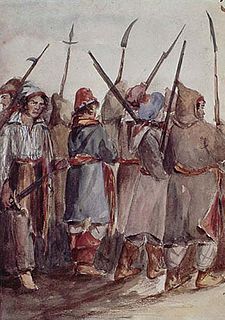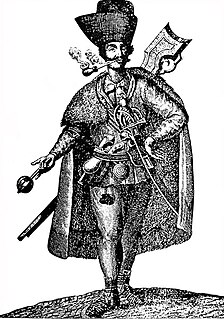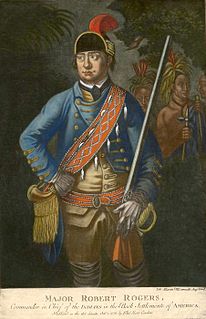 W
WIrregular military is any non-standard military component that is distinct from a country's national armed forces. Being defined by exclusion, there is significant variance in what comes under the term. It can refer to the type of military organization, or to the type of tactics used. An irregular military organization is one which is not part of the regular army organization. Without standard military unit organization, various more general names are often used; such organizations may be called a "troop", "group", "unit", "column", "band", or "force". Irregulars are soldiers or warriors that are members of these organizations, or are members of special military units that employ irregular military tactics. This also applies to irregular troops, irregular infantry and irregular cavalry.
 W
WThe Belarusian resistance during World War II opposed Nazi Germany from 1941 until 1944. Belarus was one of the Soviet republics occupied during Operation Barbarossa.
 W
WA fifth column is any group of people who undermine a larger group from within, usually in favor of an enemy group or nation. The activities of a fifth column can be overt or clandestine. Forces gathered in secret can mobilize openly to assist an external attack. This term is also extended to organised actions by military personnel. Clandestine fifth column activities can involve acts of sabotage, disinformation, or espionage executed within defense lines by secret sympathizers with an external force.
 W
WGrenz infantry or Grenzers were light infantry troops who came from the Military Frontier in the Habsburg Monarchy. This borderland formed a buffer zone between Christian Europe and the Ottoman Empire, and the troops were originally raised to defend their homelands against the Ottoman Turks. When there was no danger of war against the Ottomans, the Grenzer regiments were employed by the Habsburgs in other theatres of war, although one battalion of each regiment would always remain guarding the border.
 W
WA mercenary, sometimes known as a soldier of fortune, is an individual who takes part in military conflict for personal profit, is otherwise an outsider to the conflict, and is not a member of any other official military. Mercenaries fight for money or other forms of payment rather than for political interests. Beginning in the 20th century, mercenaries have increasingly come to be seen as less entitled to protections by rules of war than non-mercenaries. Indeed, the Geneva Conventions declare that mercenaries are not recognized as legitimate combatants and do not have to be granted the same legal protections as captured service personnel of a regular army. In practice, whether or not a person is a mercenary may be a matter of degree, as financial and political interests may overlap, as was often the case in all of history.
 W
WA partisan is a member of an irregular military force formed to oppose control of an area by a foreign power or by an army of occupation by some kind of insurgent activity. The term can apply to the field element of resistance movements. The most common use in present parlance in several languages refers to occupation resistance fighters during World War II.
 W
WThe 28 "Rules of Ranging" are a series of rules and guidelines created by Major Robert Rogers in 1757, during the French and Indian War (1754–63).
 W
WRuga-Ruga were irregular troops in Eastern Africa, often deployed by western colonial forces. They often served as mercenaries or local auxiliaries alongside the regular Askari, professional soldiers who were often hired in other regions of Africa. While the latter were trained by officers of the European colonial powers in Africa, the Ruga-Ruga were mostly hired from tribal warriors during times of conflict.
 W
WTrenck's Pandurs were a light infantry unit of the Habsburg Monarchy, raised by Baron Franz von der Trenck under a charter issued by Maria Theresa of Austria in 1741. The unit was largely composed of volunteers from the Kingdom of Slavonia and Slavonian Military Frontier, and named after security guards otherwise employed to maintain public order. The Pandurs were presented to the empress in May 1741—with the unit's military band—earning them a claim of pioneering martial music in Europe. The Pandurs did not use uniforms and had an overall oriental/Ottoman appearance. The original organization of the unit was retained until 1745, when it transformed into a regiment. Trenck was relieved of command in 1746 and imprisoned in Spielberg Castle, where he died in 1749. The unit ultimately transformed into the 53rd Infantry Regiment, headquartered in Zagreb, until it was disbanded in 1919. The regiment's commemorative medals bear Trenck's image wearing Pandur attire.
 W
WIn international relations, violent non-state actors (VNSA), also known as non-state armed actors or non-state armed groups (NSAGs), are individuals and groups that are wholly or partly independent of state governments and which threaten or use violence to achieve their goals.
 W
WViolent non-state actors at sea denominates all violent non-state actors that engage in naval, amphibious or littoral violence or warfare.